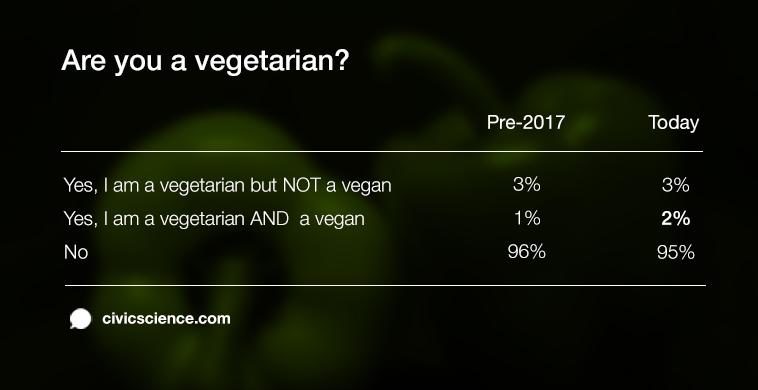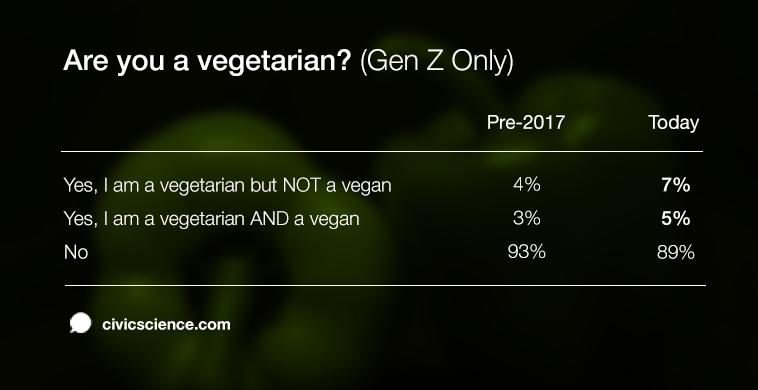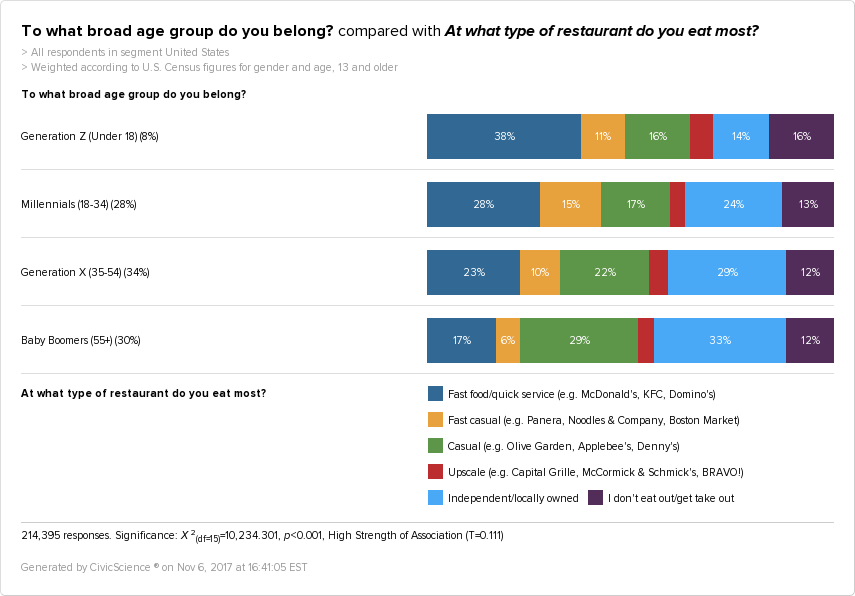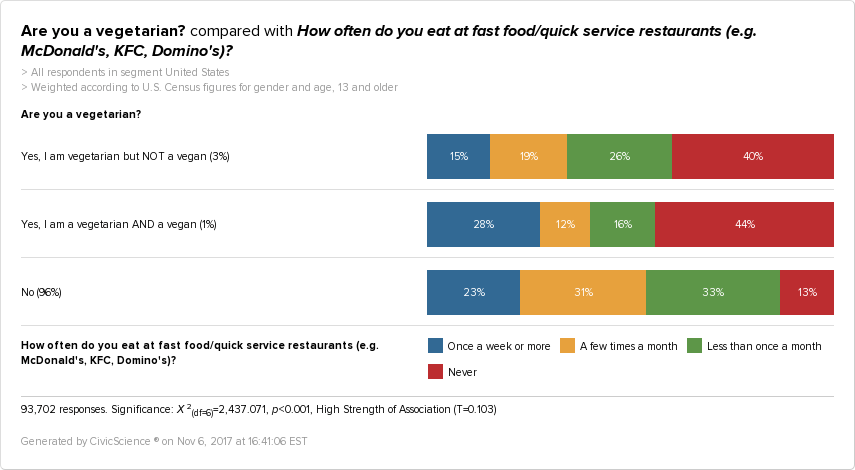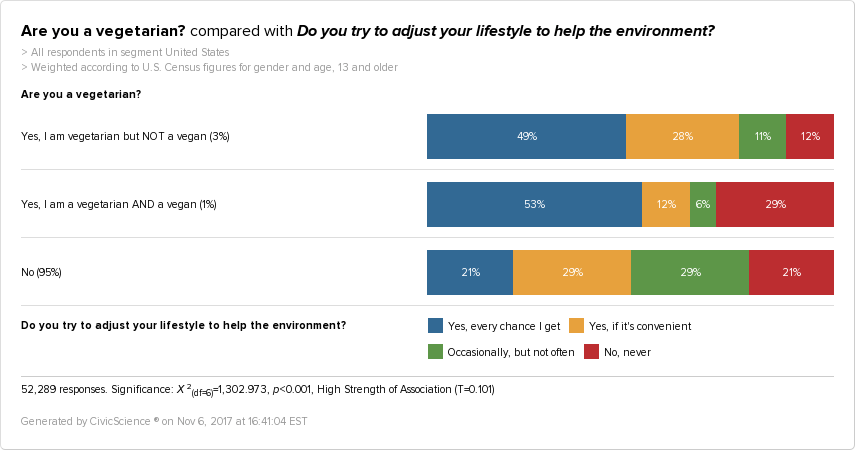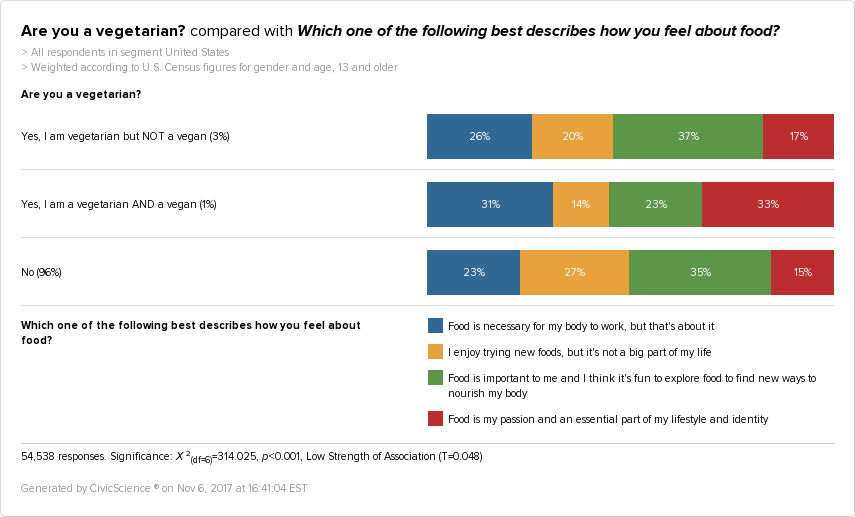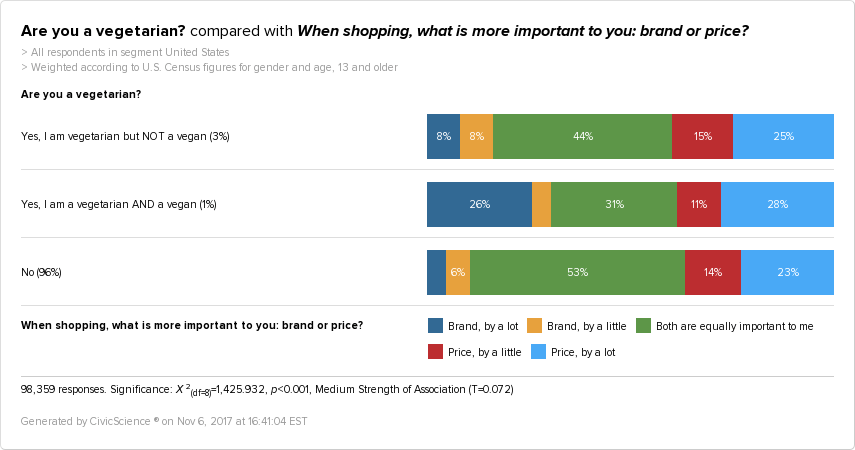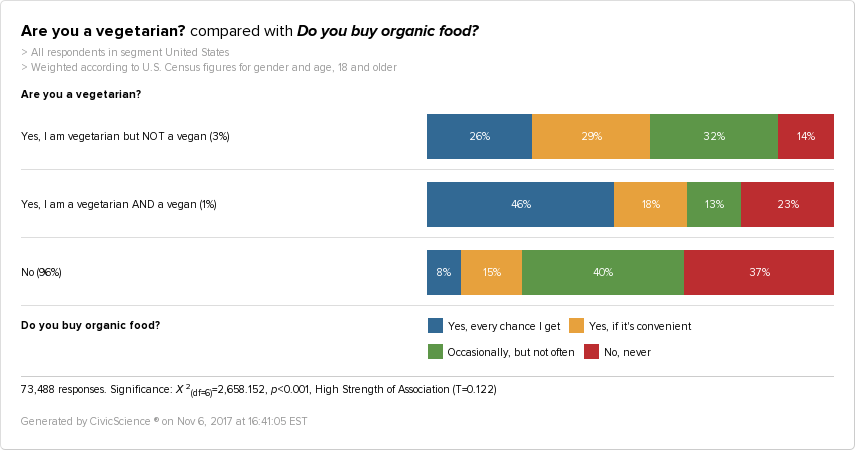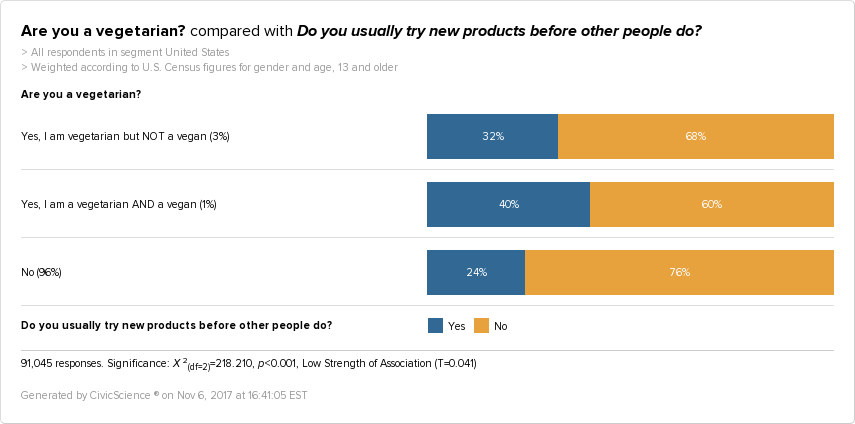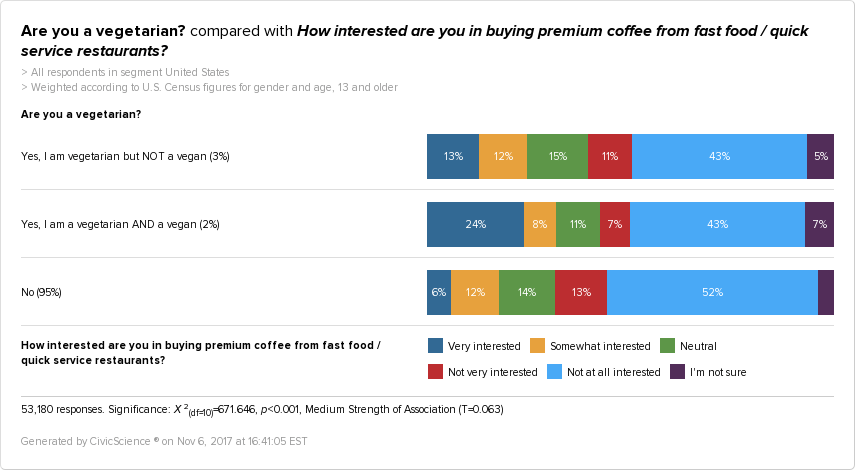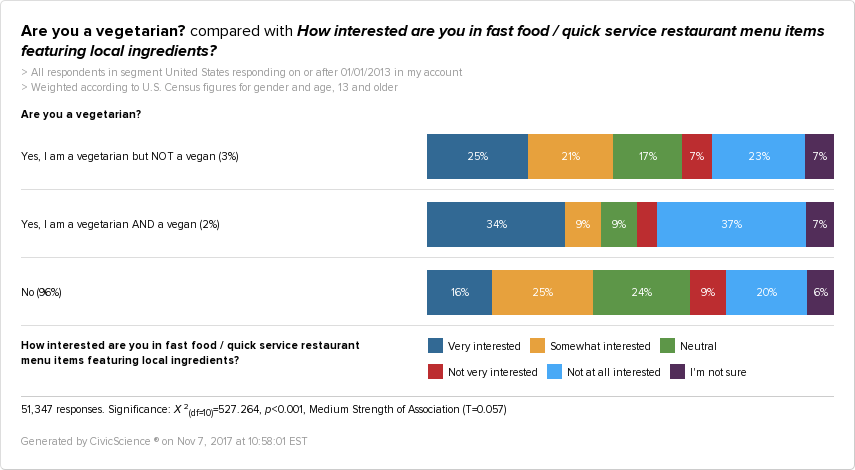The Gist: The popularity of veganism increased between 2016 and 2017, with Generation Z leading the change. We predict that Quick Serve Restaurants will be among the first to feel the effects of these changing dietary habits of young people, and will need to adapt to accommodate the vegan lifestyle.
Earlier this year, international food and restaurant consultants, Baum + Whiteman, released their 2018 food and beverage forecast. In the forecast’s third chapter, the duo predicted plant-based foods will be the top trend of 2018.
Among other data, this report cites a 90% increase in vegan searches according to Google’s trend mappers. So, whether or not people are adopting a vegan lifestyle, there’s undoubtedly growing awareness and curiosity around the topic.
CivicScience data seem to confirm that, while it may not take off as early as 2018, plant-based diets are on a slow and steady increase. Overall, respondents saying that they follow a vegan diet increased from 1% before 2017 to 2% in 2017.
No, 1% isn’t wildly game-changing, but it is a sign of change. So,we decided to look at the breakdown of the overall population to find exactly who was the engine of change.
Turns out, it’s Generation Z.
By the end of 2016, only 4% of Gen Z claimed to be vegetarian and 3% claimed to be vegan.
As of now, 7% say they are vegetarian and 5% are vegan.
Vegetarian Millennials remained static between 2016 and 2017 and vegan Millennials increased from 3% to 4%. Generation X and Baby Boomers showed no change.
What this means is, as the oldest members of Gen Z transition into adulthood, they could be the catalyst for a shift in how Americans eat. And restaurants aren’t ready.
Vegan Quick Serve Restaurants
According to the report from Baum + Whiteman, “’plant-based’ is the new ‘organic,’ just not in restaurants.” But restaurants will need to start accommodating the vegan diet if they want to remain top-of-mind.
Since such a young generation is leading this change, it’s reasonable to assume that the first type of restaurant to feel the effects will be Quick Serve Restaurants (QSRs) like McDonalds or Taco Bell, or convenience stores like 7-Eleven.
The majority of Gen Z, at 38%, also eats fast food at least once a week. They also do so more than older generations.
It turns out vegans are no stranger to the QSR either. This might surprise you, because the vegan diet is often associated with health and whole foods, but the data show that’s just not the case. Vegans like convenience food, too.
28% of vegans, compared with 15% of vegetarians and 23% of omnivores, say they eat at fast food restaurants once a week or more.
While the majority of vegans say that they never eat fast food, the ones who do eat fast food do so very regularly.
So, how do QSRs adjust to meet their customers’ changing demands? Let’s break down the eating and buying habits of vegans to gather some more insight.
The Anatomy of a Vegan
Vegans are environmentally friendly. 53% say they adjust their lifestyle to help the environment, as evidenced by their environmentally-friendly diet.
Vegans are passionate. 31% of vegans think of food as fuel, and 33% consider food a passion and an essential part of their lifestyle and identity. So, they want to be sure they’re properly fueling their bodies, and they’re passionate about it. They definitely held majorities over non-vegans on both of these points.
Vegans are brand-loyal. Vegans are much more likely than non-vegans to put brand over price when shopping. This can be good news for a restaurant that establishes itself as a go-to for a plant-based meal.
Vegans buy organic. 46% of vegans say they buy organic food every chance they get, compared with only 26% of vegetarians and 8% of omnivores.
Vegans are early adopters. 40% of vegans say they will usually try new products before other people do, so you know they’re not shy about trying new menu items. Only 32% of vegetarians and 24% of omnivores consider themselves early adopters.
Now we know that vegans like organic foods, trusted brands, and caring for the environment, what does that mean for Quick Serve Restaurants?
Quality May Be the Answer
Vegans are generally interested in trying higher quality menu options. Almost ¼ of vegans say that they’re very interested in buying premium coffee from QSRs, much more than non-vegans, by a lot.
34% of vegans are also very interested in QSR menu items featuring local ingredients, which is a much higher percent than non-vegans.
This makes sense since the overall majority (26%) of vegans prefer independent and locally owned establishments when they go out to eat. Establishing a locally-grown menu could bring in vegan customers who wouldn’t have eaten fast food otherwise.
Offer Vegan Options
Offering organic options could also help bring in more of the vegan crowd, but we don’t think quality is the only answer. While 26% of vegans say brand is more important than price, 28% say price is more important and 31% want an even mix of both. Remember, we’re looking at Generation Z as our majority, so their wallets aren’t overflowing yet. Plus, who doesn’t love a good deal?
In the end, we think, just offering plant-based items like Beyond Meat on the menu — which we’ve already shown to be popular even among the omnivorous crowd — could be a first step in adapting to the coming change in consumer habits.
